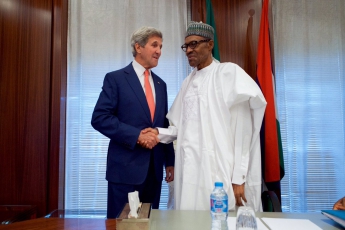Nigeria's Latest ‘Ceasefire’ Disputed
Oil and gas pipeline attacks in Nigeria may yet continue unabated despite reports of a ceasefire called by the Niger Delta Avengers (NDA), as the government and oil and gas companies maintain silence on the issue.
Garba Shehu, the media assistant to the Nigerian President, did not comment on the issue when contacted by Natural Gas World on August 24.
The reported ceasefire, widely covered in national media, has attracted interest around the world because the NDA has succeeded in shutting in some 750,000 b/d of oil or roughly one-third of Nigeria oil production capacity, and helping to push world oil prices back to around $50/b.
Bennett Morka, a pilot with Atlantic Aviation which provides helicopter services out of Port Harcourt to upstream firms and who follows events in the Delta, told Natural Gas World August 24 that NDA representatives are recalcitrant in nature and will not declare a ceasefire, despite the media reports.
"Those who are willing amicably to resolve issues with the government are Mend - the Movement for the Emancipation of the Niger Delta. NDA has made it known before now that they are not in agreement with Mend. A lot of other splinter groups have arisen. One is the Reformed Niger Delta Avengers (RNDA), a group that has been trying to resolve issues with the federal government," he said.
Meanwhile oil and gas majors in the country like Shell, ExxonMobil and Nigeria LNG have maintained silence on the effect the 'ceasefire' will have on output of the gas-fired power plants that have been without gas.
A source at Shell Nigeria however said that the reported ceasefire, although sketchy, may result in the lifting of the force majeure on Shell’s feed gas into Nigeria LNG, plus a return of investor confidence, and a return of gas supplies to the power plants.
Such optimism for the power sector though may be premature. Nigeria’s power minister Babatunde Fashola said a month ago that 23 gas pipelines had been damaged or destroyed by militants since February, reducing Nigeria’s effective gas-fired generation capacity from 5 GW to 2 GW as of July. One Nigerian investor Transnational Corp is reported to have suspended plans to invest $1bn in a new 1-GW gas-fired plant in the Niger Delta. Such is the disruption that last week Fashola spoke of the need longer term to invest in coal-fired plants to improve security of power supplies.
An earlier truce ended prematurely on June 29 with the killing of two Eni workers, although it was unclear if the NDA were responsible for that attack.

Nigerian President Muhammadu Buhari (right) greets US Secretary of State John Kerry on August 23 (Photo credit: US State Dept/Twitter)
US Secretary of State John Kerry made his third official visit to Nigeria and expressed his "strong support for President Buhari's efforts to fight corruption, terrorism, and improve Nigeria's economy"; his visit to Sokoto in northern Nigeria however focused on condemning Islamist group Boko Haram's “nihilistic view of the world.”
Omono Okonkwo


